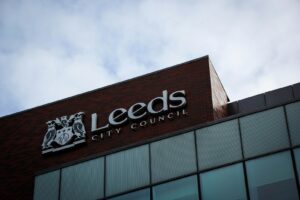This week the UK social housing sector’s environmental, social and governance (ESG) reporting standard was launched for consultation.
A second edition of the Sustainability Reporting Standard for Social Housing (SRS) has been produced in a bid to encourage housing associations to produce more detailed information about the quality of their stock, resident satisfaction, net-zero strategies and approaches to equality, diversity and inclusion.
The draft has been designed following an initial series of focus groups and interviews with housing associations and funders, conducted by Sustainability for Housing (SfH), the body overseeing the standard.
More than 160 organisations have already adopted the standard, including small and large housing associations and all the sector’s main funders.
However, SfH will be consulting on the changes throughout April and is seeking views from all adopters, endorsers and other interested parties.
The proposed Version 2.0 of the SRS speaks to new sector requirements, including new Tenant Satisfaction Measures (TSMs), and external frameworks and guidance, including from the Investment Association and the Task Force on Climate-related Financial Disclosures (TCFD).
Some of the key criteria changes include:
- A greater focus on housing quality and how providers manage and mitigate risk of damp and mould for residents
- The condition of stock, as well as data on gas safety checks and fire, asbestos and legionella risk assessments
- Information on net-zero strategies, retrofit and environmental disclosures such as SAP ratings as well as EPC ratings of stock
- Disclosures around EDI policies and approaches, as well as training and professional development of staff
- Adopters should lay out their net-zero strategy as well as completed energy efficiency work
A particular focus on improving damp and mould conditions in social homes has been applied after the death of two-year-old Awaab Ishak shocked people into how badly it can affect people living in poor conditions.
Additionally, as the cost-of-living continues to bite, housing associations are attempting to install more energy efficient measures into properties such as heat pumps and solar panels in order to make them cheaper to rung in the long term as well as helping to save the planet.
Brendan Sarsfield, Chair of SfH, said: ‘The worlds of ESG and social housing continue to evolve at pace and ESG reporting needs to keep up.
‘This new draft version of the standard has been created in consultation with the housing and finance sectors and hopefully meets new emerging demands whilst recognising the importance of continuity.
‘We are pleased so many adopters have helped us with this update and we hope more will continue to contribute to the consultation in the coming weeks.’
Sarah Smith, Chief Financial Officer at Southern Housing and SfH Board Member, said: ‘Demand for investment in ESG areas such as social housing is only going to grow and the sector needs to be alive to this opportunity as it looks to tackle the housing crisis.
‘The sector also needs to maintain its solid reputation when it comes to ESG reporting, which is why SfH has sought to tighten up key areas of focus within the SRS.’
Image: Norbert Levajsics

















Leave a Reply